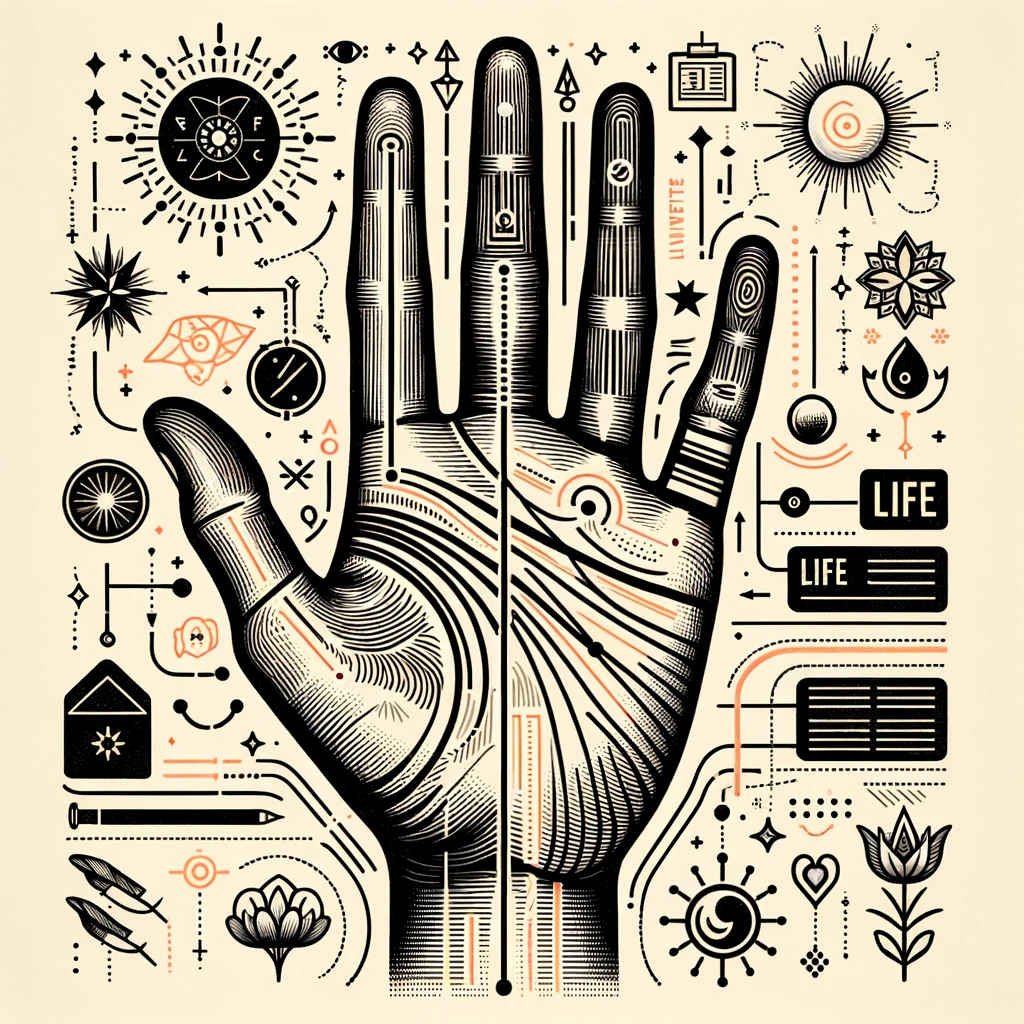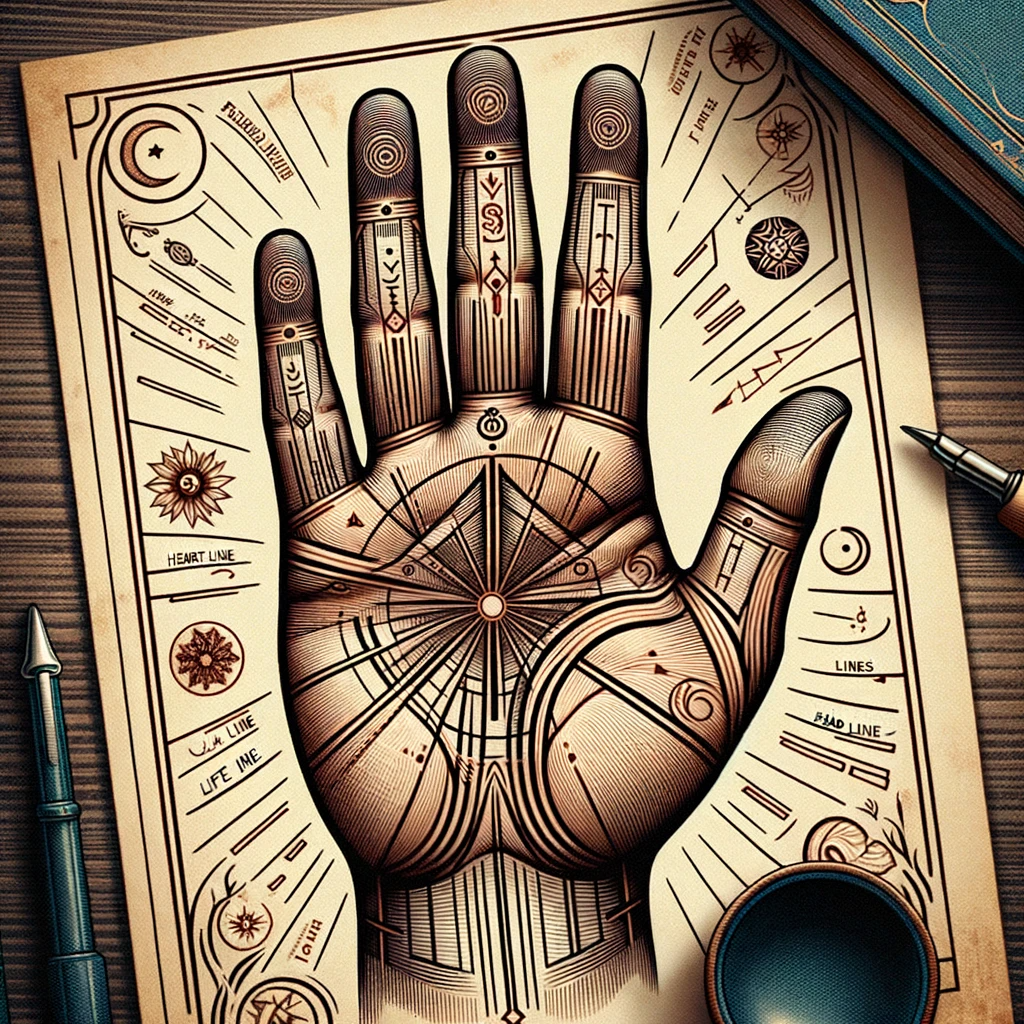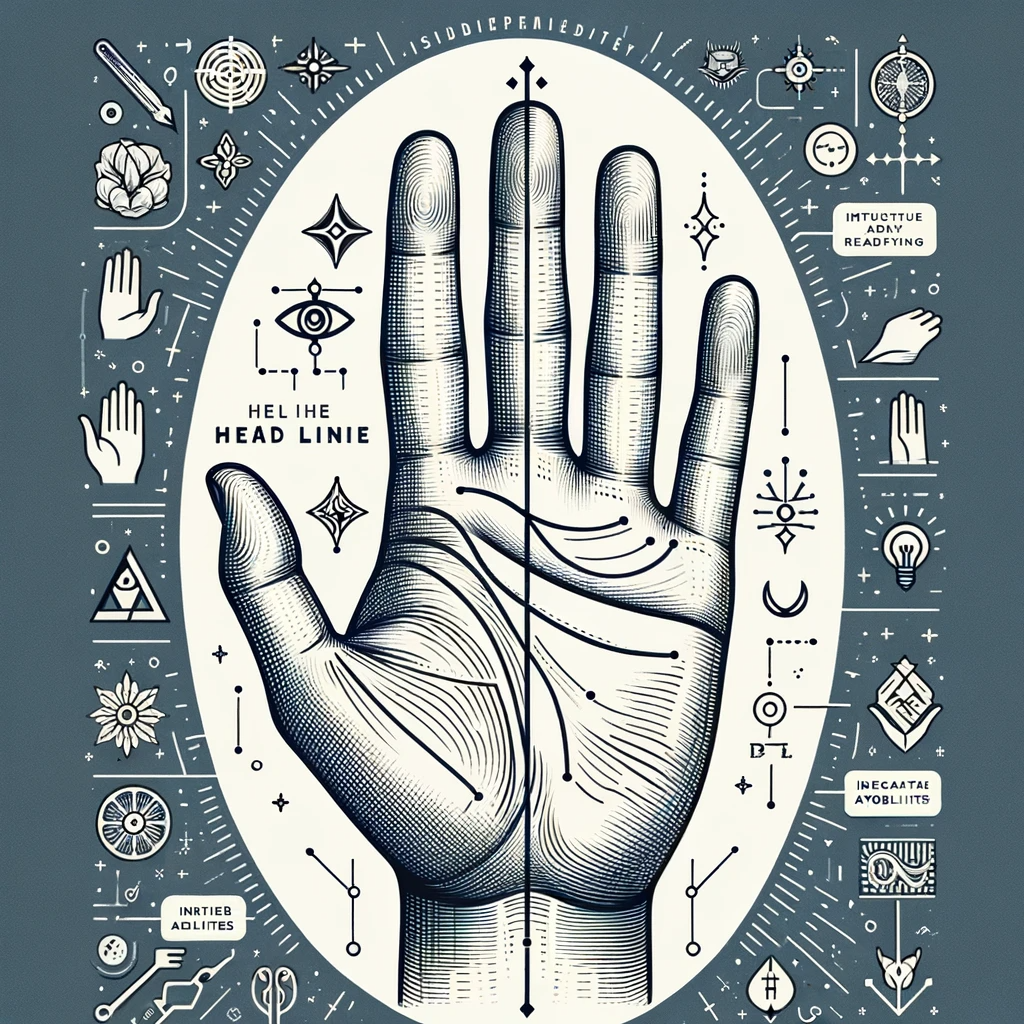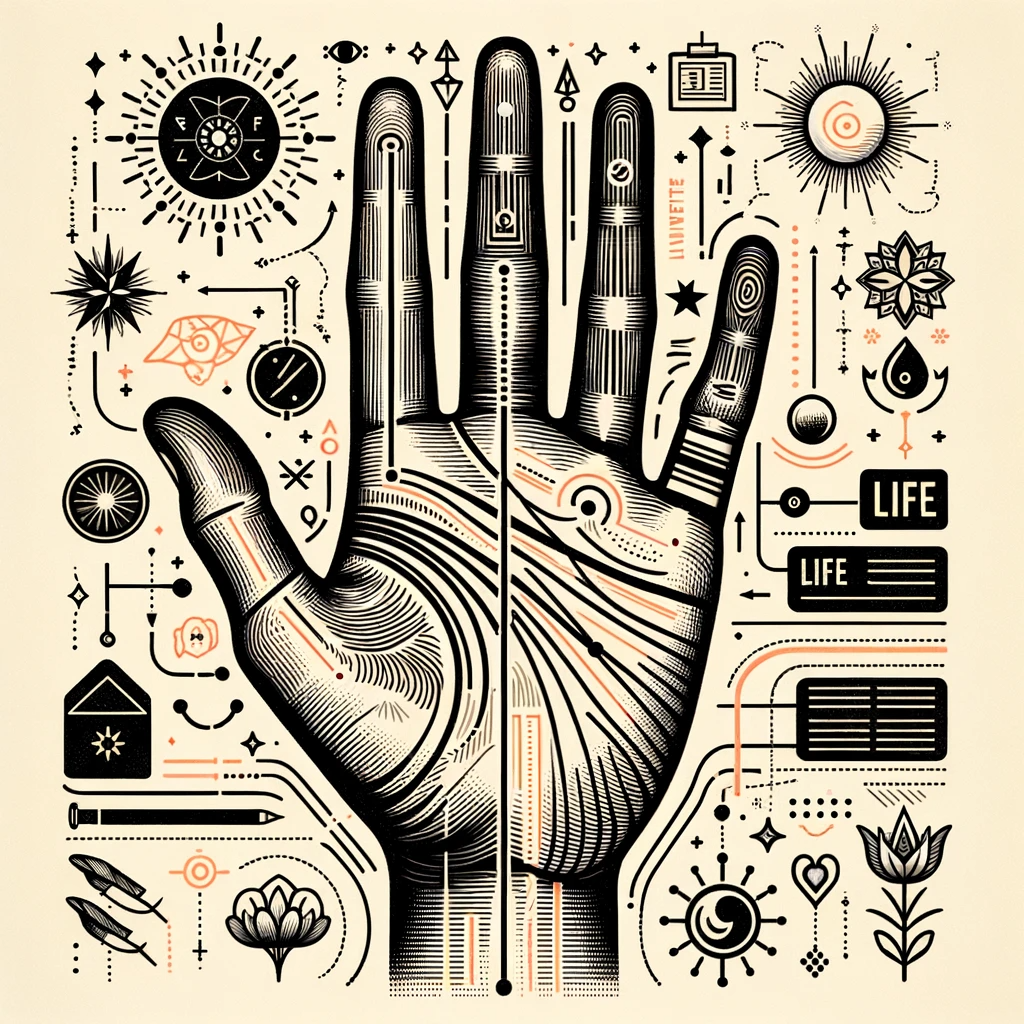The Basics of Palmistry: An Introduction to Reading Palms

Palmistry, also known as chiromancy or palm reading, is the ancient practice of interpreting the lines and physical features of the hands to reveal information about a person’s character and life path. By studying the size, shape, and lines of the hands and fingers, a practitioner can uncover hidden truths about an individual’s personality, relationships, talents, and destiny.
Origins and History of Palmistry
Palmistry originated in ancient cultures of Asia, Egypt, and Greece before spreading through Europe and the rest of the world:
- Ancient Hindu texts reference palm reading from around 3,000 BCE. Palmistry also featured in early astrology and fortune telling.
- Aristotle discovered a treatise on palmistry in Alexander the Great’s tomb, suggesting it was in Greece by the 4th century BCE.
- Greek physician and philosopher Galen linked specific hand traits to personality traits around 200 CE.
- Modern palmistry emerged during the Renaissance when occult practices resurged in Europe in the 15th-17th centuries.
- In the 19th and 20th centuries, palmistry grew in popularity for self-discovery and as entertainment. New schools of thought also evolved.
While skeptics question its validity, millions worldwide continue consulting professional palmists for insights into their lives.

Core Techniques Used in Palmistry
Palmists use a multifaceted approach to read palms, drawing from four key areas:
Hand and Finger Shapes
The relative size and proportions of the palm and fingers indicate personality traits. For example, large palms suggest an outgoing nature, while short fingers reflect a detail-oriented mind.
Lines on the Palm
The four main lines (heart, head, life, fate) provide insight into love, relationships, intellect, life purpose and obstacles. Secondary lines offer more details.
Mounts on the Palm
Raised fleshy areas under the fingers called mounts relate to individual priorities and talents. Highly developed mounts reveal dominant traits.
Textures and Colors on the Palm
The palm’s skin tone, texture, and resilience also hold meaning. For example, a supple palm reflects flexibility, while moist palms suggest anxiety.
Professional palmists synthesize these facets to build a holistic understanding of the hands they read.
Decoding the Elements of Palmistry
Now let’s explore the key elements analyzed in palm reading more closely:
Hand Shapes
Dominant hand shapes include:
- Earth hands: Square palms and short fingers. Practicality, material focus, steadiness.
- Water hands: Long palms and fingers. Emotionality, creativity, intuition.
- Air hands: Square palms, long fingers. Intellectual, communicative, social.
- Fire hands: Rectangle palms, short fingers. High energy, courage, impulse.
Finger Ratios
Relative finger lengths reveal personality nuances. For example:
- Long index finger – leadership
- Short index finger – congeniality
- Long ring finger – expressiveness
- Short little finger – impatience
Major Palm Lines
The four most telling lines are:
- Heart line: Matters of love and emotionality
- Head line: Intellect, reasoning, and communication style
- Life line: Energy, health, and vitality
- Fate line: Life purpose, trajectory, and achievements
Mounts
The main mounts under the fingers are:
- Venus: Love, creativity, aesthetics
- Jupiter: Leadership, status, ambition
- Saturn: Wisdom, focus, integrity
- Sun: Fame, charisma, individuality
- Mercury: Communication, wit, intelligence
Palmists inspect these mounts for insights into talents.
Texture and Color
Hand texture and color offer additional clues:
- Soft palms: Sensitive, creative
- Firm palms: Strong-willed, energetic
- Pliant palms: Flexible, adaptable
- Moist palms: Anxious, nervous
- Pale palms: Introverted
- Pink palms: Optimistic
- Red palms: Passionate, quick-tempered
Tips for Reading Palms

When deciphering palms:
- Examine both the dominant and passive hands as they may differ
- Note proportions of fingers in relation to palm
- Check where major lines originate, terminate, intersect
- Identify any secondary lines or unusual markings
- Assess which mounts are most prominent
- Consider hand shape, texture and flexibility
- Synthesize all elements together to formulate an integrated assessment
Proper palm reading takes intuition, pattern recognition and experience. Master palmists can uncover hidden depths about a person’s inner world and destiny through their hands.
FAQ About Palmistry
Is palm reading fortune telling or scientific?
Palmistry falls between art and science. Modern palmists consider genetics, biology and psychology while respecting the mystical elements. There are still uncertainties though.
Do palm lines ever change?
Major lines are mostly fixed but can shift subtly over decades. Minor lines transform as life situations change. Palmists focus on the big picture revealed over a lifetime in the palms.
Can palm reading predict future life events?
Palmistry is best used for assessing personality, strengths, and potential rather than divining definitive future happenings. The hands reveal tendencies more than predestined outcomes.
Do palm readings require psychic powers?
Not necessarily. Mastering the techniques to recognize and synthesize palm signs gives insight into people. However, some palmists do utilize extra-sensory perception along with standard skills.
Is palmistry helpful for self-understanding or only others?
Absolutely! Reading your own palms may give the most accurate insight since you can validate findings against your self-knowledge. It’s ideal for better understanding your nature, talents, and challenges.
While skepticism exists, palmistry continues intriguing millions as an art form that reveals hidden layers of a person’s psyche and destiny through this ancient practice decoding the hands.
